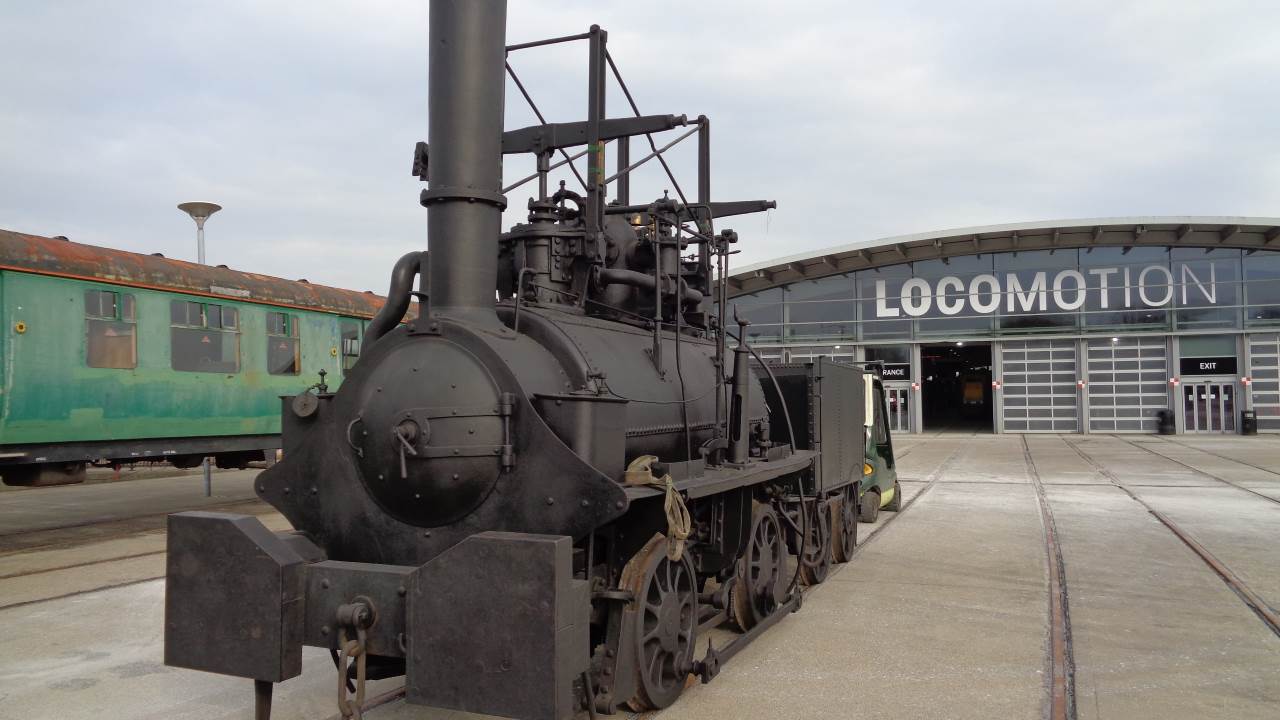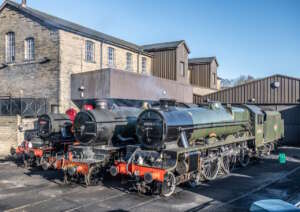The National Railway Museum has announced that experts in early railway history have headed to Locomotion in Shildon in April to investigate an unnamed engine as part of a new research project.
The locomotive is thought to be the world’s first replica locomotive dating from 1855, the engine has been referred to as ‘The Hetton Engine’ or ‘Hetton Lyon’ after the colliery in County Durham where it spent its operational life.
The engine is believed to be a replica of an original 1822 George Stephenson design, now lost to history.
It is hoped that the research completed will help to reveal secrets about the world’s very oldest steam engines.
The project will be led by Dr Michael Bailey and Dr Peter Davidson who are recognised as world-leading specialists in the field of locomotive investigation.
The team will then take photographs and measurements, and will then carefully dismantle parts of the locomotive to compare materials and methods of construction.
The team will take photographs and measurements and will systematically and carefully dismantle parts of the engine to compare materials and methods of construction with archive evidence.
Work is set to start on 9 April and is expected to continue over a number of three-day sessions lasting several months.
The project will take place in public view at Locomotion so people can ask questions and see the investigation taking place.
Although its name is a mystery, the Hetton locomotive may be a familiar sight to people based in the North East after spending the past eight years on loan to the Living Museum of the North in Beamish.
At the end of the project, the engine will remain at Locomotion and will go on public display. The findings of the study will be sent to the National Railway Museum, before being offered to the next Early Railways Conference due to be held in 2021.
The last project of this type involving the National Railway Museum took place 20 years ago when Dr Bailey worked on an investigation into the early history of Stephenson’s Rocket.
A private donor is providing funding for this project.
What did the officials say?
Dr Sarah Price, Head of Locomotion said:
“The history of early railways is incredibly important for the history of the North East of England and in the early 19th century, engineering pioneers such as George and Robert Stephenson led the way in this emerging technology that would eventually change the world.
“Despite having been in preservation since the 1920s, relatively little is known about this engine and we are really looking forward to seeing what new discoveries will be made.”
Michael and Peter recently led a similar project in Newcastle which found Killingworth Billy to be ten years older than previously thought – making it the third oldest locomotive in the world. In the past Dr Bailey has also carried out investigations with his colleague Dr John Glithero, into other historic locomotives such as Samson, Albion, Nelson and Canadian National No. 40.
Dr Michael Bailey said:
“We plan to better understand the history of this locomotive and its components through detailed archival and archaeological research. As repairs were carried out, locomotives sometimes picked up parts from other engines and they were often heavily modified or rebuilt over the years, as technology advanced.
“We hope to provide new evidence of the progression of Stephenson’s locomotive designs and to perhaps find the ‘missing link’ between famous early locomotives Killingworth Billy and Locomotion No. 1.”
Where Next?
News Homepage
For the Latest Railway News
RailAdvent Online Shop
Framed Prints, DVD’s / Blu-Ray’s and more
LocoStop Community
Come and share your railway pictures






Responses